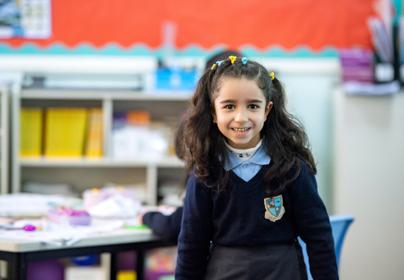Science Fair 2020
Britannica students have recently had the opportunity to solve their own science mystery by engaging in a science or engineering project. At Britannica we place huge emphasis within our science curriculum on learning through discovery, learning how to plan authentic and reproducible scientific experiments.
This year’s Science Fair allows our students to showcase their learning as they have the chance to select their own project question, whilst enjoying the experience of discovery. Students will use our Science Fair website as a platform to present their process and findings, which gives them the opportunity to learn, cross-curricular with ICT.
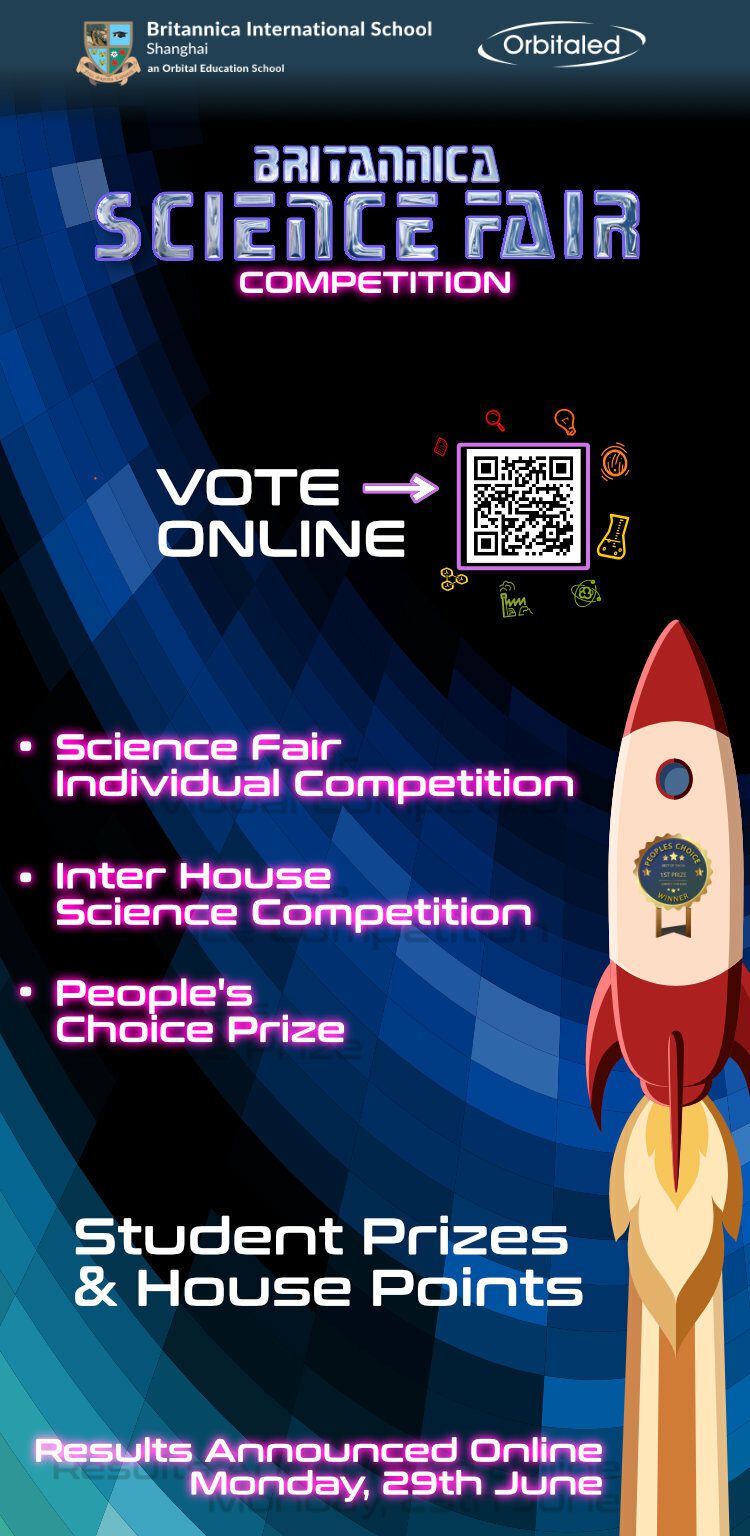
Active Learning
Conceptually, a science fair project is very straightforward. A student chooses a scientific question he or she would like to answer. Then, library and Internet research on the question gives the student the background information he or she needs to formulate a hypothesis and design an experiment.
After writing a report to summarise this research, the student performs the experiment, draws his or her conclusions, and presents the results to teachers and classmates.
However, what makes a science fair project such a great learning experience is that it involves so much more than science. For most students, their research report will most likely be the longest paper they have ever written. The bibliography for the report will also be the first-ever for some students.
And, while library research is still important, these reports are a great way to hone computer research skills, as well as to learn the ins and outs of common office programs, such as word processors and spreadsheets.
Most projects also involve a good deal of mathematics, and all students get an opportunity to enhance their presentation skills when they prepare their experimental findings and discuss their projects with the judges.
A science fair project can often provide an opportunity for the discussion of ethical issues, such as plagiarism and falsification of data. Indeed, such a discussion is highly recommended.
Of course, learning about science is at the heart of a science fair project. Our society relies more on science every day, and science fairs are a great way for students to become more knowledgeable about how the world around them works. Every citizen needs sufficient science literacy to make educated decisions about what he or she reads in the media, about health care, and about other every-day problems.
Preparing a science fair project is an excellent example of what education experts call active learning or inquiry (also “hands-on” learning). It is a very effective instructional method; indeed, it is recommended as a cornerstone of successful science teaching.
Continued and Long Term Improvements
Since returning to school, both student and teacher use of educational technology has continued, and our Virtual Science Fair is one example of the collaboration, use of learned skill, and enthusiasm for using technology that is now evident among students and staff. It epitomises everything that we could have hoped the lockdown and distance learning could have educationally achieved. Teachers and students found those ‘Deeper Powers’, and have arisen from the recent challenge better ready to use the technology essential in the 21st Century workplace.



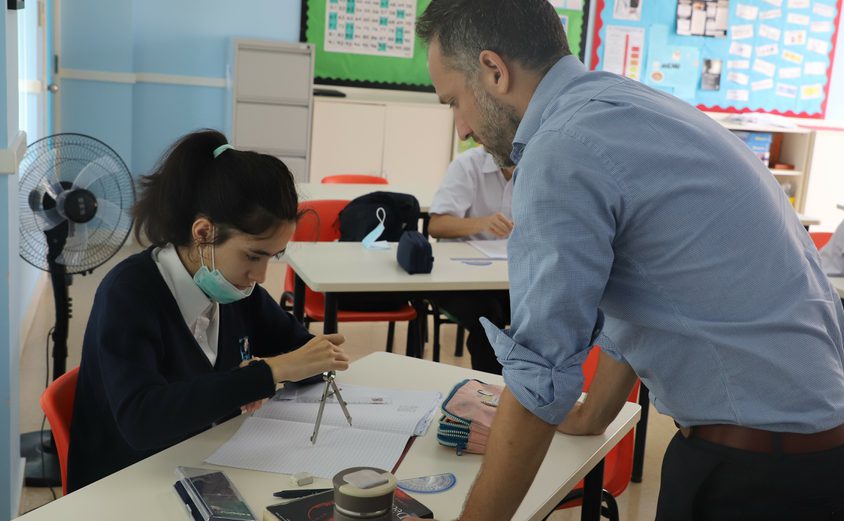
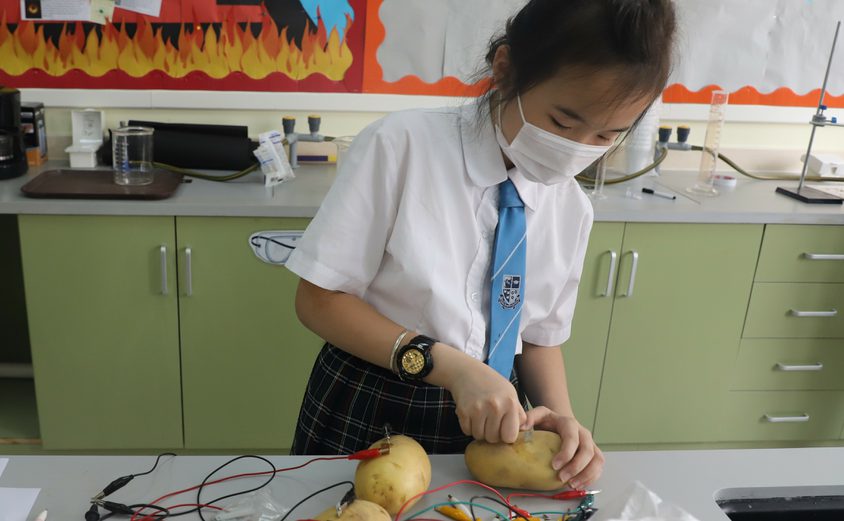
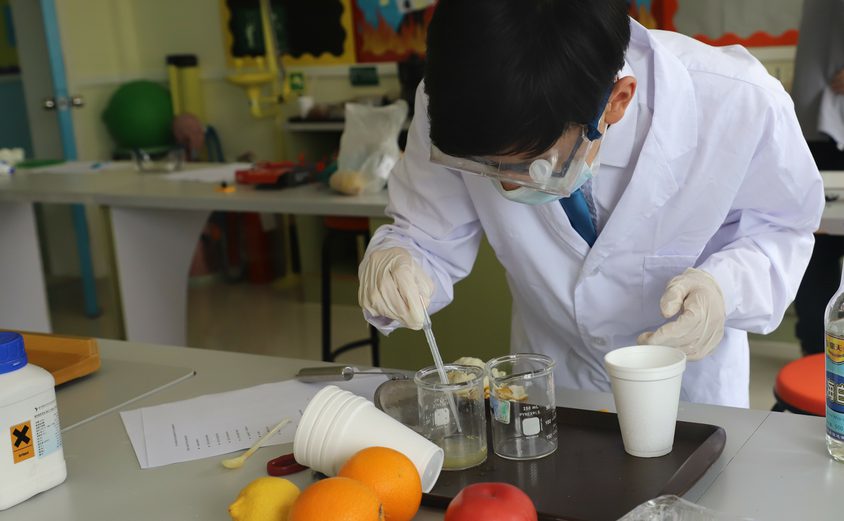
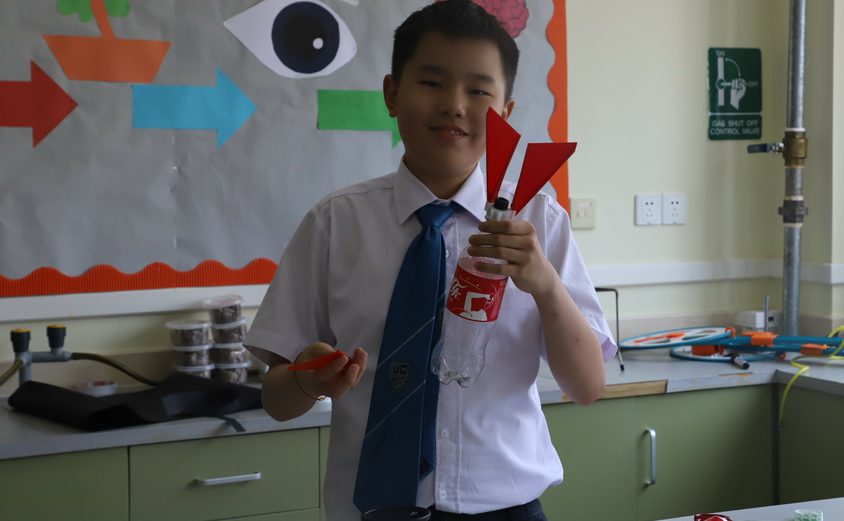
University Offers
During the past few months our Year 13 students have been hearing from the universities that they applied to last term and receiving offers of places subject to achieving good grades in their final A-Level examinations, which they must now choose between. Year 12 students are starting to research and consider course and university selection. In order for our students to be fully aware of the choice of academic institutions available to them, Britannica will host its first-ever university guidance day which will see several UK and European Universities virtually visit the school to provide students with information and guidance.
The University of Bristol and Manchester University have proven to be the most strongly sought after destinations by our year 13 students, so far with offers steadily coming in. Bristol is ranked consistently 9thhighest of UK all universities, often above Oxford and other US giants in certain degree specialisms. Manchester University is currently ranked 7thin the world according to QS world ranking system.
This is an astounding feat and testament to the quality of current students and the teaching received at Britannica.
I look forward to reporting on the final outcome of these university offers at the beginning of next term
Paul Farrell
Principal Designate



